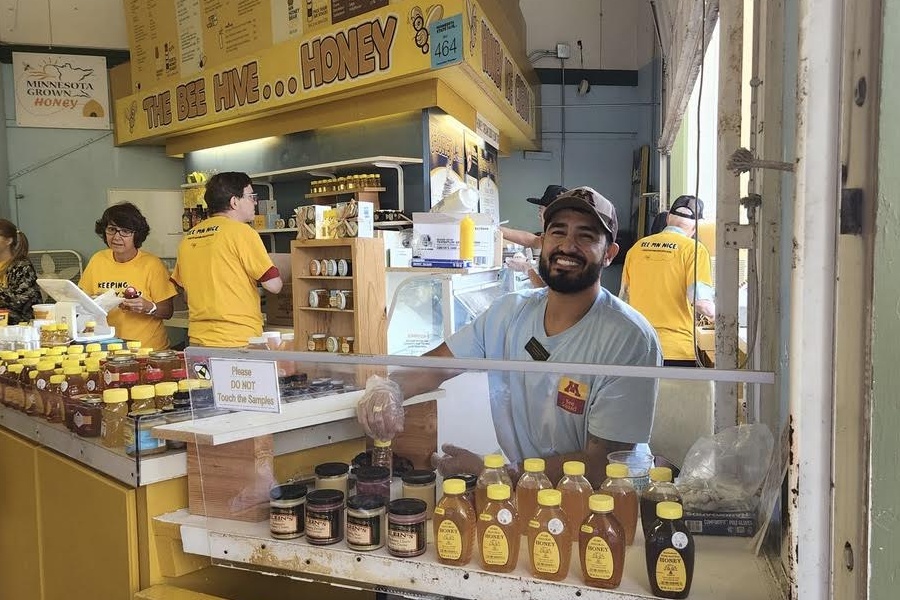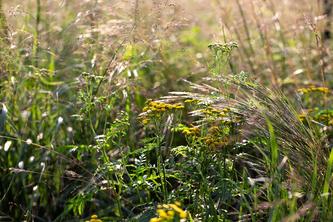
At the tail end of his University of Minnesota graduate program in agriculture education, Joshua Muñoz is already teaching at Como Park High School in St. Paul. Also a veteran and participant in University of Minnesota Extension programs, Muñoz talks about his military service and his path to teaching and beekeeping.
Tell us about your military service and where your path has taken you since then.
I joined the U.S. Marine Corps right after I graduated from high school in Highland Park in St. Paul in 2010. My job was communications, and I was stationed in Okinawa, Japan. I loved being in Japan, so I stayed there for my entire four-year contract. And then I got out and used my GI Bill to get a bachelor’s degree in agricultural communications through CFANS (the U of M’s College of Agricultural, Food and Natural Resource Sciences) before going on to grad school there.
How did you get involved with beekeeping?
In CFANS, there's a lot of research opportunities. I started doing genetics studies with corn researchers. I felt like I was a little behind in the world of agriculture, so I just started soaking it all in through internships at farms and companies.
I was working on a hemp farm in Hastings when an Extension educator came for a visit. She invited me to participate in the Bee Squad (the education and outreach arm of the Bee Lab) and then I transferred there to work. Then, I took Extension’s Beekeeping in Northern Climates course and started going to conferences. Keeping a few hives of my own is just a hobby to keep on learning for myself. I have a permit for my hives here in St. Paul.
How can beekeeping help veterans?
We know all about equine therapy and working with other animals as therapy. It’s similar with bees; they are little animals but as a colony, they form one large organism. You have to be really relaxed with your movements when you work with bees, and there’s the mindfulness part. That can be very beneficial for veterans.
Beekeeping has also opened up a community for them. I got out in 2014 after four years and I can't imagine how the veteran of 15 or 20 years transitions into the civilian world. Community is important for every single human being—socializing, being comfortable, and being real with other people.
Now that you are completing your master’s degree in agricultural education and teaching, can you tell us how bees matter to your classroom?
First, let me say that teaching agriculture in schools is fairly new here in the cities, although it’s normal in the rest of the state. The teacher before me here at Como Park is one of those who got it started.
Honey bees are livestock. They pollinate crops and produce honey. And you have to manage them just like you have to manage pigs, chickens, and cows. But it’s different because you can't really control where they go. That brings up a big problem that we have with the spread of diseases in the hive.
Bees connect to other farming, even cattle, because the alfalfa hay that they eat is pollinated by bees. The story of agriculture really starts with pollination, whether from honey bees that we raise, or from our native bees or other pollinators.
Tell us about the honey you are selling in the picture.
I’m an ambassador of the Minnesota Honey Producers Association, so I represent them at the State Fair and other places to promote local honey.
It’s just wild to me because beekeeping is probably one of the oldest industries, but we're just scratching the surface of what it is. At the fair, people were commenting on the different varieties of honey, what they taste like based on what kind of flowers they got their nectar from, and which tastes stronger or more delicate. It’s becoming like wine tasting.
- Categories:
- Agriculture and Environment
- Environmental health
- Food





